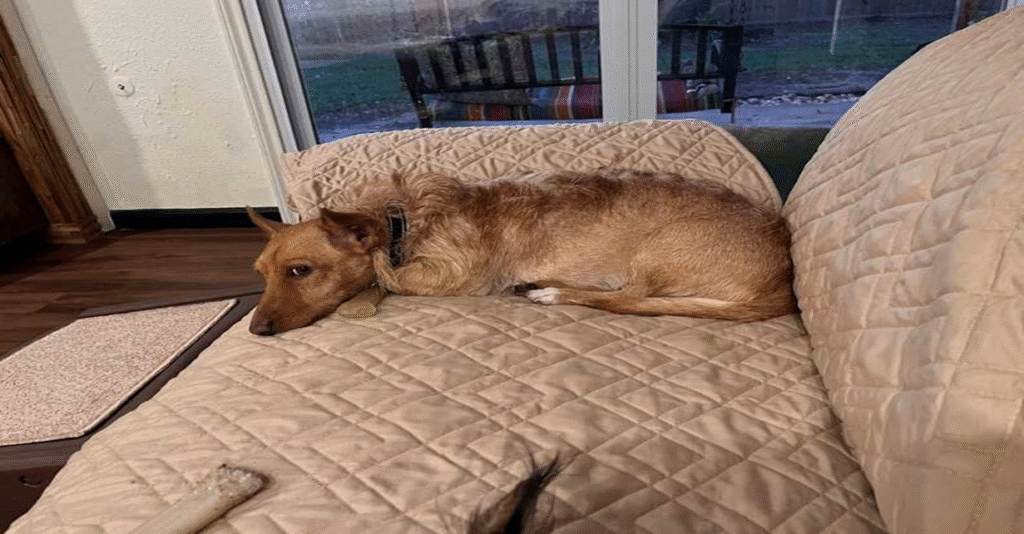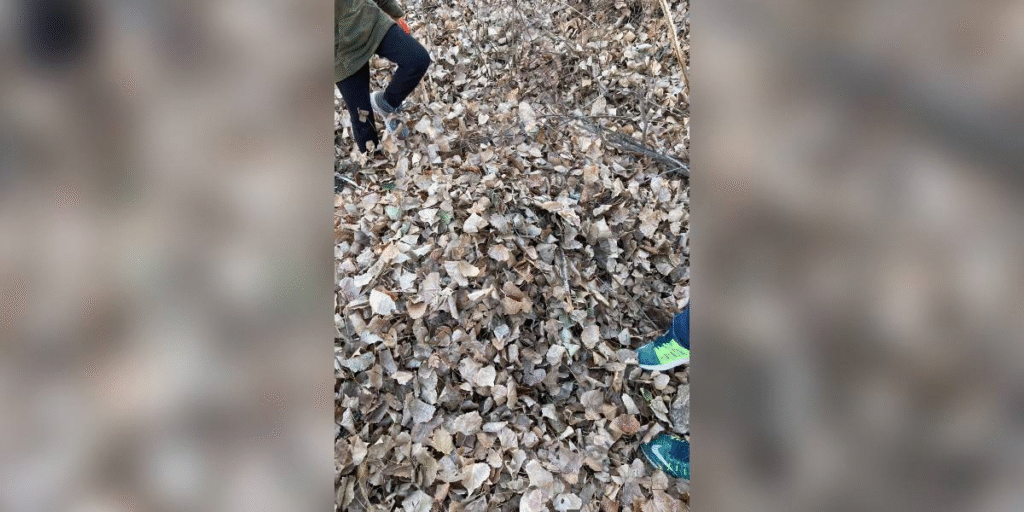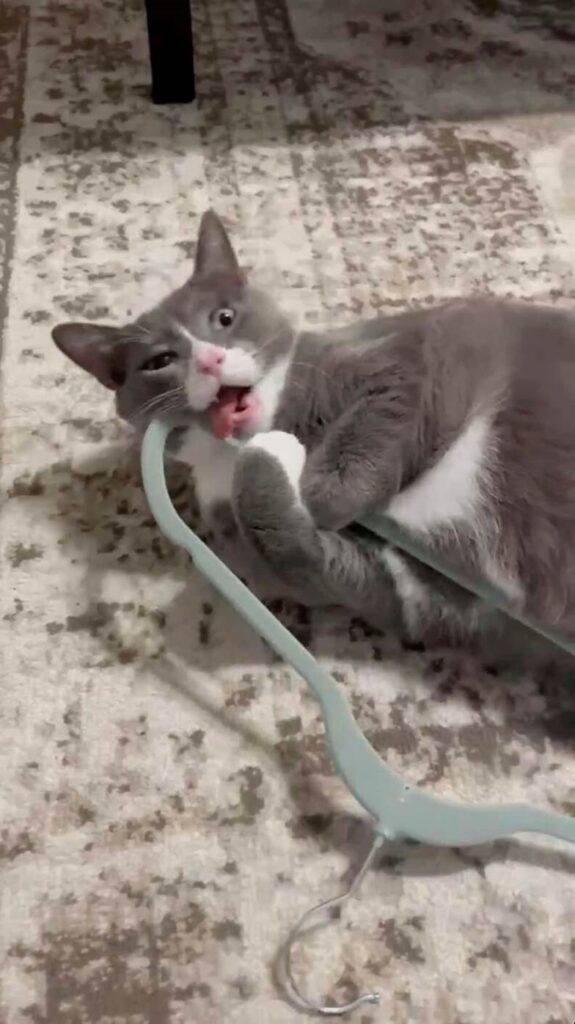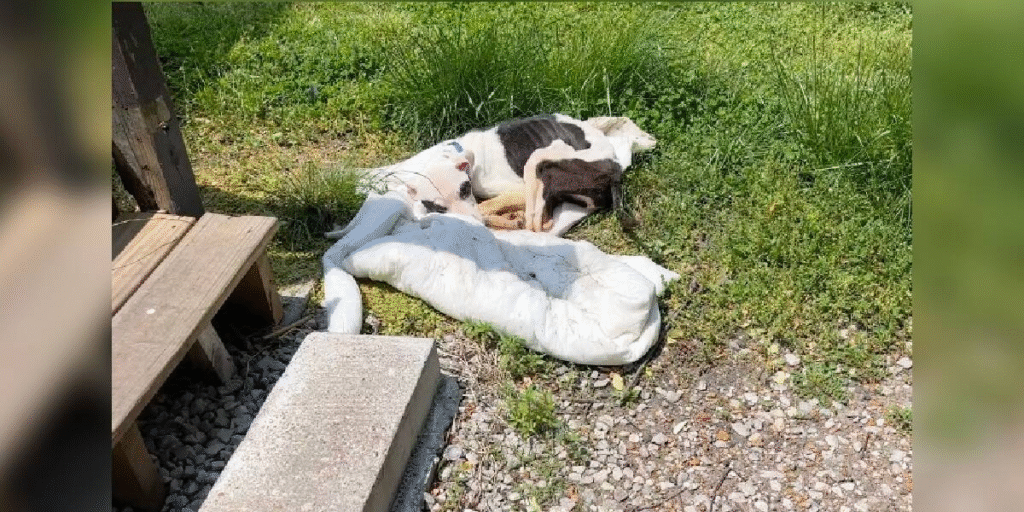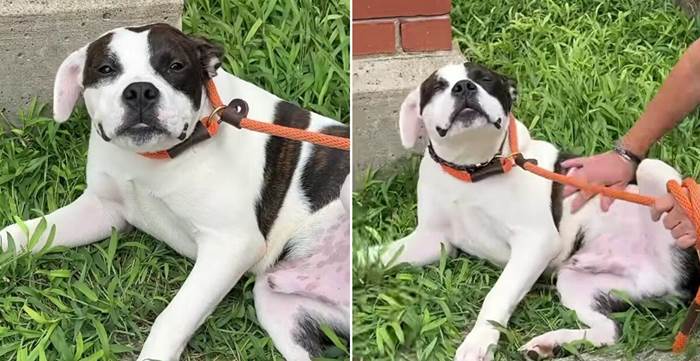The Cat With the Hilarious Ultimatum: Horace’s Reign of Sarcasm
Horace was not a soft cat. He was, as the shelter staff often joked, a magnificent, furry, 18-pound house cat trapped in the body of a 10th-century Viking chieftain. His ginger coat was luxurious, his paws were the size of small biscuits, and his face, wide and round, possessed a permanent expression of deep and profound disapproval. He was the reigning—and deeply judgmental—king of Kennel B, and he made sure everyone knew it. His presence alone was a deterrent. While other cats purred and pressed themselves against the wire for attention, Horace would simply sit. He sat like a furry, orange gargoyle, his golden eyes narrowed slightly, observing every potential adopter with an air of utter contempt. If a child tapped on his cage, he didn’t run; he let out a low, gravelly huff that translated easily to, “Are you serious right now?” He wasn’t mean; he just had a zero-tolerance policy for enthusiasm. The staff at the ‘Happy Tails’ rescue center loved Horace, but they were also desperate to get him adopted. He’d been with them for six months, consuming premium kibble and rejecting no fewer than 15 perfectly lovely humans. Each prospective adopter was greeted with the same disdainful glare, followed by Horace turning his back to meticulously groom his flank, a clear message of, “You are not worthy of my profile.” Brenda, the shelter manager (the same one who knew Barney, the teddy-bear dog), finally threw her hands up in exasperation one Tuesday morning. “I give up,” she declared to her team. “We’ve tried the ‘sweet and cuddly’ bio, the ‘distinguished gentleman’ bio, and the ‘needs a quiet home’ bio. Nothing works because no one is prepared for the sheer sass of him. He is the opposite of marketable.” That afternoon, fueled by a mixture of deep affection and utter surrender to Horace’s superior attitude, Brenda decided they needed a new strategy: honesty. Brutal, hilarious, cat-obsessed honesty. She pulled out a marker and a bright yellow piece of cardstock. She looked at Horace, who was currently pretending the entire room did not exist. Horace opened one eye, saw the marker, and seemed to sigh with the dramatic patience of a celebrity dealing with paparazzi. “You asked for this, buddy,” Brenda muttered, and began to write. The result was the famous notice that instantly changed everything. It was taped proudly to his cage, right below his official, yet entirely misleading, adoption profile. The handwritten sign was titled: ‘HORACE’S TERMS OF SERVICE (READ BEFORE TOUCHING)’ The sign didn’t scare people away; it did the exact opposite. People came specifically to see the cat who was too honest for his own good. They read the notice, and they laughed—a deep, appreciative laugh of anyone who had ever been owned by a cat. One afternoon, a woman named Chloe walked in. Chloe wasn’t flashy or loud; she was a graphic designer who wore slightly too-large glasses and cherished her quiet, sarcastic independence. She bypassed the kittens playing tumbleweed in the center room and walked directly to Horace’s section, drawn by the cluster of amused onlookers. She read the sign once, her eyebrows lifting. She read it again, and a slow, genuine smile spread across her face. “Well,” she announced, “that’s a refreshing level of transparency.” She knelt by the cage, not trying to reach in, but simply meeting Horace’s gaze. Horace, for his part, was preparing his signature “contempt stare,” but something about Chloe’s quiet confidence made him pause. She didn’t coo; she didn’t beg. She just held his gaze for a long moment, a slight smirk playing on her lips, as if challenging his sass. “Horace,” she murmured, “I also judge people who eat a second slice of pizza. But I still do it. We might be perfectly miserable together.” For the first time in six months, Horace’s rigid composure cracked. Instead of hissing or retreating, he let out a tiny, confused chirp. It wasn’t a meow; it was a noise that said, Wait, you get me? The adoption was seamless. Chloe was vetted, approved, and within an hour, Horace was loaded into a carrier. He didn’t protest. He seemed to recognize that he had found his perfect accomplice. The first few weeks at Chloe’s apartment were less of an integration and more of a royal coronation. Horace immediately claimed the largest, sunniest cushion on the sofa. He learned the exact moment Chloe’s alarm went off and would begin his morning ritual of planting himself firmly on her chest, not for cuddles, but to ensure she understood the gravity of his hunger. He was still the same cat, but the stress was gone. The sass that was once a defense mechanism became a personality quirk. Instead of staring down shelter visitors, he now focused his critical eye on the neighborhood squirrels, the mail carrier, and the fact that Chloe dared to use a different brand of instant coffee. But every night, after the judging was done, after the demands were met, and after the apartment settled into silence, Horace would perform his one, secret, non-negotiable act of affection. He would pad softly across the duvet, position himself perfectly by Chloe’s head, and begin to purr—not a loud, roaring engine, but a gentle, resonant rumble. In those moments, the Viking chieftain finally surrendered. He didn’t just have a home; he had a subject who understood that behind the hilarious ultimatum and the permanent frown, there was just a big, demanding cat who needed someone brave enough to read the fine print and love him anyway. He was loved, and that, Horace had to admit, was simply acceptable.
The Cat With the Hilarious Ultimatum: Horace’s Reign of Sarcasm Read More »
